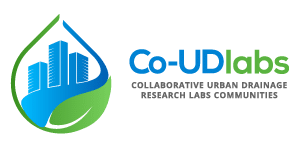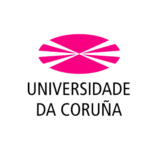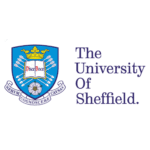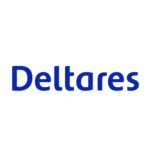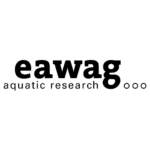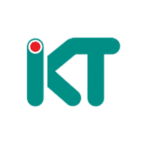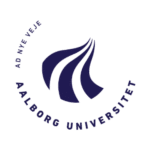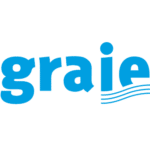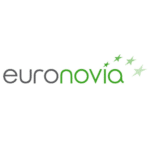Partners
The Co-UDlabs consortium is coordinated by Universidade da Coruña (Spain) and is implemented by 9 partners from 7 European countries.
The University of A Coruña (UDC) is a public institution, founded in 1989 as a centre of teaching and basic and applied research. In the course of its 25 years of existence, UDC has experienced a considerable increase, both in quantity and quality, with regard to research and teaching excellence. Our current student population is approx. 21.000, there are 152 research groups, and apart from its faculties the university manages 4 Technological Research Centres and 6 University Institutes.
The main tasks of the team at UDC involve leading and co-ordination of the project (WP10) and transnational access management (WP5).
Website: https://www.udc.es/en/
The University of Sheffield (USFD) was founded in 1905 as a large civic University focused on Engineering and Medical Education. It currently has over 10,400 post-graduate students and is ranked 13th in the UK and 78th in
the world, according to the 2020 QS World Rankings. Civil Engineering is ranked 47th in the World and in the UK’s 2014 Research Framework Exercise assessment was ranked 4th in the UK.
The main tasks of the team at University of Sheffield involve leading WP7 and to actively collaborate in the remaining WP.
Website: https://www.sheffield.ac.uk/
Deltares is a Dutch independent, non-profit institute for applied research in the field of water, subsurface and infrastructure. Throughout the world, Deltares works on smart solutions, innovations and applications for people,
environment and society, focusing on deltas, coastal regions and river basins. Deltares focuses on five themes: Flood Risk, Ecosystems and Environmental Quality, Water and Subsoil Resources, Delta Infrastructure, and Sustainable Delta Planning.
The main tasks and contributions of the team at Deltares will be to lead the WP3, to provide access to 2 installations in the TA programme and to actively collaborate in the remaining WP.
Website: https://www.deltares.nl/en/
Eawag is the water research institute of the ETH domain. Eawag has 500 employees who published 473 publications in 2018 (87% in ISI-listed journals, 13% practice-oriented). The natural sciences, engineering, and
social sciences are all represented at Eawag. This combination enables comprehensive research into water and the water environment, from relatively pristine aquatic ecosystems to fully engineered water and wastewater management systems.
The main tasks of the team at Eawag involve leading the activities on “Harmonization and Capacity building” (WP2) and investigating technologies for “Smart sensing and monitoring in urban drainage” (JRA 1).
Website: https://www.eawag.ch/en/
IKT is a neutral, independent non-profit institute and works on solving practical and operational issues concerning underground sewers, pipes and other conduit engineering, its primary focus being on sewer systems.
The institute conducts research projects, material testing, CIPP liner testing, consultations and seminars on the construction, operation and renovation of underground infrastructures. IKT’s application-related research focuses predominantly on the solution of network operators’ problems and questions.
The main tasks of the team at IKT concern the supervision of sub-tasks within the scope of WP7 and WP8.
Website: https://www.ikt-online.org/
INSA Lyon (National Institute of Applied Sciences of Lyon) is a leading engineering school with more than 1400 graduates each year, and a total of 5400 students (including 4500 engineering students). INSA Lyon hosts 23 research laboratories, more than 700 faculty members, 650 PhD students, and over 1000 industrial contracts with the socio-economic world. INSA Lyon participated in 33 FP7 projects and is now involved in 24 H2020 projects.
The main tasks and contributions of the team at INSA is to lead the WP6 on “Smart sensing and monitoring in urban drainage” and to provide access to 3 Installations for TA: GROOF, OTHU-DRB and OTHU-SuDS.
Website: https://www.insa-lyon.fr/en/
Situated in Northern Denmark, Aalborg University (AAU) is a young and dynamic, currently enrolling more than 20,000 students and 3,000 employees. AAU offers education and research within the fields of natural sciences, social sciences, humanities, technical and health sciences. The university is engaged in more than 100 Horizon 2020 projects, 40 Erasmus + collaborative projects.
The main task of Aalborg University is to provide expertise and access to the Frejlev Research Station (WP5, 9). It will also be lead research activity under WP8.
Website: https://www.en.aau.dk/
A non-profit organization, the Graie – group of research, technical coordination and water information has been mobilizing and bringing together stakeholders in the fields of water management, aquatic environments and urban planning for more than 30 years. Created in 1985, the Graie now has more than 320 members: public and private professionals, local authorities, firms and research laboratories.
The main tasks of the team at GRAIE are to contribute to the animation of networking activities, mainly in the establishment of links between scientists and operators. Graie will be leader of WP1.
Website: http://www.graie.org/
Euronovia is a French consulting company (SME) specialized in EU grant applications, the management of European funded projects, as well as in all related communication, dissemination and exploitation activities. Euronovia gathers a highly professional team with different backgrounds so as to offer trans-sectorial and transdisciplinary skills to address different stakeholders’ concerns such as SMEs, large manufacturing groups, universities, research institutes, clusters etc.
As a specialized company in communication and dissemination actions, Euronovia will be the leader of the WP4 Dissemination and communication.
Website: https://euronovia-conseil.eu/en/
